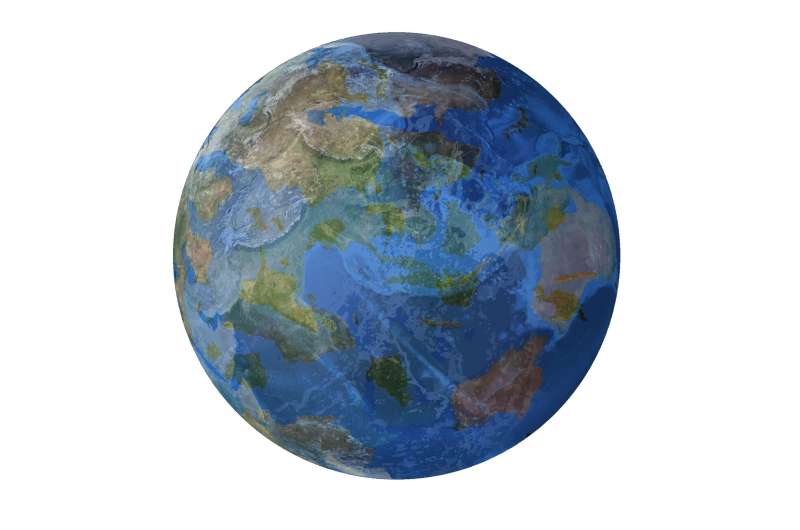Opinion: Scientists might have discovered an Earth-like planet. Let one of them tell you about it.

There's more important work for the James Webb Space Telescope. A team of astronomers at the University of Montreal hopes to use it to study a newly found planet beyond our solar system (an exoplanet) that could be almost completely covered in water.
Astronomers believe that TOI-1452 b, larger in size and mass than Earth, could be an "ocean planet" covered by a thick layer of water, much more than Earth. That's because though about 70% of Earth's surface is covered by ocean, water makes up actually less than 1% of its mass.
On this newly found planet, water might make up between 20-30% of its mass.
TOI-1452 b appears to have a temperate climate because of the distance from the star it orbits, but don't get your space suit ready just yet. We probably won't be relocating there anytime soon. Though astronomers say it's close, close for them is still about 100 light-years from Earth.
USA TODAY Editorial Board Member Carli Pierson spoke with Ph.D. student Charles Cadieux, who led the team in its discovery of this potential new "water world." Their discussion has been lightly edited for length and clarity.
Tell me about your discovery.
In the search for life, we're always interested in temperate planets. We announced the discovery of a new exoplanet that is different from other planets in our solar system. We have gaseous planets like Jupiter and rocky planets like Earth. We know there is a new kind of planet between what is rocky and gaseous: This new exoplanet is one of them.
Do you think humankind could eventually live on TOI-1452 b?
We don't have the ability to travel to other stars, not in the short term. We have only one world, one planet.
We don't know the temperature there but it's not too hot, not too cold. There are a lot of uncertainties about the composition of the atmosphere. That is the next step. So, even if we say the temperature is 30 degrees Celsius (86 Fahrenheit), there is a possibility the surface temperature is much higher because of a greenhouse effect. But that is something we don't know because we don't know the atmospheric property. If you were on that planet, the surface would be all water.
We want to understand the origins of life: Is there life outside of Earth? We are just building a catalog of these interesting planets. Maybe in the future, we will find life.
This could be a complete revolution. We have the chance to be the first generation of humans to know if we're alone in the universe, to find markers associated with life.
Do you think there is intelligent life out there?
No one knows the answer. It is easy to say "yes" because it is less scary.
It could be that life exits but remains as microbes, and that it never evolves into something intelligent. If we run the numbers: In our own galaxy there are estimates of about 300 billion stars. And then there are hundreds of billions of galaxies in the universe.
There are a lot of variables, but when you look at the numbers it seems to make sense that we're not alone. But then again, maybe there's only one planet that has life.
How many planets like this have researchers found?
It's very unique. We only know of about five ocean planets. Twenty-five years ago we didn't know of any exoplanets. Now we know of over 5,000.
We think that the whole planet of TOI-1452 might be covered with water everywhere. The most probable is that (this exoplanet) is made up to 20-30% of water, the rest would be rocks and metals just like Earth.
But it's a really different type of planet, not just because it has water because, for a molecule, water is very common. Even in our own solar system, there are moons that have a lot of water like (those of) Jupiter and Saturn.
What do you want laypeople to know about your work and this discovery in particular?
It's important to show how unique our planet is and how we should protect it. We don't have anywhere else to live.
(c)2022 USA Today Distributed by Tribune Content Agency, LLC.




















